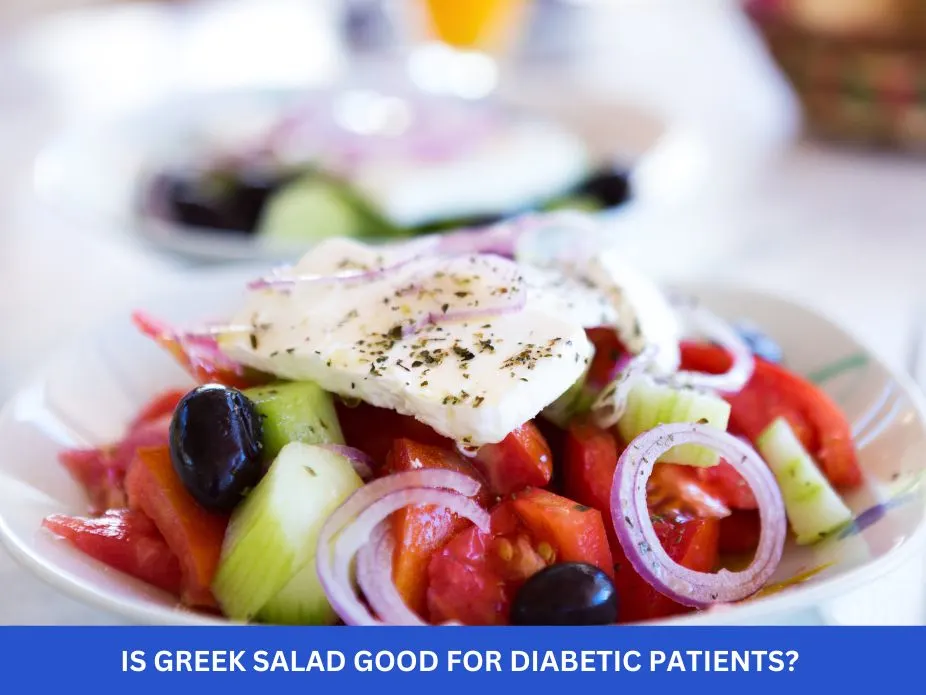If you’ve ever taken or thought about taking prenatal vitamins, you might have asked yourself: Can prenatal vitamins make me gain weight? It’s a common question—and a totally valid one. After all, you’re putting something new into your body, and changes—especially weight changes—can feel scary or confusing.
The short answer? No, prenatal vitamins themselves don’t make you gain weight. But let’s not stop there. The real story is more detailed, and understanding it can help you feel confident about your choices—whether you’re pregnant, planning to be, or just curious.
In this article, we’ll explore everything you need to know about prenatal vitamins and weight gain. We’ll cover how they work, why some people think they’ve gained weight from them, and what’s really happening in your body. We’ll also look at common myths, side effects, and how to choose the right supplement.
What Are Prenatal Vitamins?
Before we talk about weight, let’s understand what prenatal vitamins actually are.
Prenatal vitamins are specially designed multivitamins for women who are pregnant, trying to get pregnant, or breastfeeding. They’re packed with essential nutrients that support both the mother’s health and the baby’s development.
Unlike regular multivitamins, prenatal vitamins contain higher levels of certain nutrients that are crucial during pregnancy. These include:
- Folic acid – Helps prevent birth defects in the baby’s brain and spine.
- Iron – Supports increased blood volume and prevents anemia.
- Calcium – Builds strong bones for both mom and baby.
- Vitamin D – Works with calcium for bone health and immune function.
- DHA (an omega-3 fatty acid) – Supports baby’s brain and eye development.
So, while they’re not a magic pill, they play a big role in keeping both mom and baby healthy.
Why Do People Think Prenatal Vitamins Cause Weight Gain?
Even though prenatal vitamins don’t directly cause weight gain, many women report gaining weight after starting them. So where does this idea come from?
Let’s look at the most common reasons:
Your Body Is Changing During Pregnancy
If you’re pregnant, your body is going through major changes. You’re growing a baby, your blood volume is increasing, your uterus is expanding, and your breasts may be getting bigger. All of this adds weight—and it’s completely normal.
But because you started taking prenatal vitamins around the same time, it’s easy to blame the vitamins instead of the natural process of pregnancy.
Increased Appetite and Cravings
Prenatal vitamins don’t make you hungry. But pregnancy hormones (like estrogen and progesterone) do. These hormones can increase your appetite and make you crave certain foods—especially carbs and sweets.
When you eat more calories than your body needs, you gain weight. Again, it’s not the vitamin causing the gain—it’s the change in eating habits.
Water Retention and Bloating
Some women notice bloating or puffiness after starting prenatal vitamins. This is often due to iron, which is a key ingredient in most prenatal supplements.
Iron can cause mild constipation and water retention in some people. This doesn’t mean you’re gaining fat—it just means your body is holding onto a little extra fluid. The number on the scale might go up, but it’s temporary.
Do Prenatal Vitamins Have Calories?
One simple way to think about this: Can something with zero calories make you gain weight?
Most prenatal vitamins contain zero calories. They’re not food. They’re supplements—tiny pills or gummies filled with concentrated nutrients.
Even gummy prenatal vitamins, which may contain a small amount of sugar, usually have less than 10 calories per serving. That’s like half a cracker. Not enough to cause weight gain.
So, no—prenatal vitamins don’t add meaningful calories to your diet. They can’t make you fat just by being swallowed.
What’s Actually Making Me Gain Weight?
If it’s not the vitamins, then what is?
Weight gain during pregnancy (or when trying to conceive) is normal and expected. But let’s break down the real causes.
Normal Pregnancy Weight Gain
The American College of Obstetricians and Gynecologists (ACOG) says most women should gain between 25 and 35 pounds during pregnancy if they start at a healthy weight.
Here’s what that weight typically includes:
- Baby: 7–8 pounds
- Placenta: 1–2 pounds
- Amniotic fluid: 2–3 pounds
- Increased blood volume: 3–4 pounds
- Breast tissue: 2–3 pounds
- Uterus growth: 2 pounds
- Stored fat (for birth and breastfeeding): 5–9 pounds
- Fluid retention: 2–4 pounds
So, most of the weight is your body preparing for a healthy pregnancy and delivery—not from a vitamin.
Eating More Than Usual
Many women feel hungrier during pregnancy. Some eat “for two,” thinking they need double the food. But in reality, most women only need about 300 extra calories per day in the second and third trimesters.
Eating 500 or 1,000 extra calories daily will lead to weight gain—whether or not you’re taking prenatal vitamins.
Reduced Physical Activity
Pregnancy can make you tired. Nausea, back pain, or just feeling “off” might make you less active. If you’re moving less but eating the same or more, weight gain is likely.
Again, this has nothing to do with the vitamin.
Can Prenatal Vitamins Affect Metabolism?
Another angle people wonder about: Do prenatal vitamins slow down my metabolism or change how my body burns fat?
The answer is no—not directly.
Your metabolism may change during pregnancy, but that’s due to hormones and your body’s increased demands, not the vitamin.
Prenatal vitamins support your metabolism by providing B vitamins (like B6 and B12), which help turn food into energy. If anything, they help your body function better—not slower.
So, if you feel sluggish, it’s likely due to pregnancy fatigue, not the supplement.
What About Side Effects Like Bloating?
Yes, some women feel bloated or gassy after taking prenatal vitamins. Let’s talk about why.
Iron and Digestive Issues
Iron is a common culprit. It’s essential for preventing anemia, but it can cause:
- Constipation
- Gas
- Bloating
- Nausea
These symptoms can make your stomach feel bigger or heavier. But this isn’t fat gain—it’s temporary digestive discomfort.
Tip: To reduce these side effects:
- Take your vitamin with food.
- Drink plenty of water.
- Eat high-fiber foods.
- Ask your doctor about switching to a gentler form of iron (like ferrous bisglycinate).
Gummy Vitamins and Sugar
Gummy prenatal vitamins are popular because they’re easier to swallow. But many contain sugar, corn syrup, or other sweeteners.
While the sugar amount is small (usually 2–5 grams per gummy), it can add up if you take two or more daily. Over time, extra sugar can contribute to weight gain—especially if your diet is already high in sugar.
Also, gummies often lack certain nutrients (like iron), so they may not be the best choice for everyone.
Bottom line: Gummy vitamins won’t make you gain weight on their own, but they’re not always the most effective option either.
Can Non-Pregnant Women Take Prenatal Vitamins?
Yes, some women who aren’t pregnant take prenatal vitamins. Maybe they’re trying to conceive, or they’ve heard they’re “good for hair and nails.”
But can they cause weight gain in non-pregnant women?
No Direct Weight Gain
Just like in pregnant women, prenatal vitamins don’t add calories or fat. So, they won’t directly cause weight gain in non-pregnant women either.
Possible Indirect Effects
However, there are a few things to consider:
- Increased appetite: Some women report feeling hungrier after starting prenatal vitamins. This isn’t proven by science, but it could be psychological or due to improved energy levels.
- Water retention: Iron and sodium (in some brands) may cause mild bloating.
- Over-supplementation: Taking more nutrients than your body needs doesn’t help—and in rare cases, too much iron or vitamin A can be harmful.
Also, if you’re not pregnant or planning to be, you probably don’t need the high levels of iron and folic acid in prenatal vitamins. Regular multivitamins may be a better fit.
Do Prenatal Vitamins Make Your Hair and Nails Grow Faster?
You’ve probably heard this one: Prenatal vitamins make your hair thicker and nails stronger.
And it’s true—many women notice this change.
But here’s the catch: This isn’t weight gain. It’s a side effect of increased nutrients, especially biotin, folic acid, and other B vitamins.
These nutrients support cell growth, including hair and nail cells. So, your hair may grow faster or look fuller. Your nails may stop breaking.
But again, this has nothing to do with body weight. It’s just a bonus perk.
Are There Any Prenatal Vitamins That Cause Less Bloating?
If bloating is your main concern, you’re not alone. Here’s how to pick a prenatal vitamin that’s easier on your stomach.
Look for These Features
- Gentle iron forms: Choose brands with ferrous bisglycinate or iron polysaccharide—they’re less likely to cause constipation.
- No artificial fillers: Avoid added sugars, dyes, or preservatives.
- Smaller pills: Easier to swallow and digest.
- Delayed-release capsules: These dissolve in the intestine, not the stomach, reducing nausea.
Top-Rated Options
Some well-reviewed prenatal vitamins known for fewer side effects include:
- Nature Made Prenatal Multi + DHA – Includes DHA, easy to digest.
- Ritual Essential Prenatal – Vegan, iron-free (uses gentle chelated iron), transparent sourcing.
- Garden of Life mykind Organics Prenatal – Organic, whole-food based, gentle on the stomach.
Always talk to your doctor before switching brands.
Can You Gain Weight from Just Taking Vitamins?
Let’s step back and ask a bigger question: Can any vitamin or supplement make you gain weight?
In general, no. Vitamins and minerals don’t contain enough calories to cause fat gain.
However, some supplements (like high-calorie protein shakes or weight-gainer powders) are designed to help people gain weight. Prenatal vitamins are not one of them.
Even if a supplement contains a small amount of sugar or fat, it’s not enough to tip the scale unless you’re taking huge doses.
So, if you’re gaining weight while taking any vitamin, look at your overall diet, activity level, and health changes—not the pill.
What Should You Do If You’re Gaining Weight and Worried?
It’s normal to feel anxious about weight gain—especially during pregnancy. But remember: some weight gain is healthy and necessary.
Here’s what you can do:
Track Your Weight Gently
Weigh yourself once a week, at the same time of day, and in similar clothing. Sudden spikes or drops can be a sign to talk to your doctor.
But don’t obsess over the number. Focus on how you feel.
Eat Balanced Meals
Focus on:
- Lean proteins (chicken, fish, beans)
- Whole grains (brown rice, oats)
- Fruits and vegetables
- Healthy fats (avocados, nuts, olive oil)
Avoid processed foods, sugary drinks, and excessive snacks.
Stay Active
Walk, swim, or do prenatal yoga. Exercise helps control weight, boosts mood, and prepares your body for labor.
Always check with your doctor before starting a new exercise routine.
Talk to Your Doctor
If you’re worried about your weight gain—or lack of gain—your OB-GYN or midwife can help. They’ll check your progress and make sure everything is on track.
Common Myths About Prenatal Vitamins and Weight
Let’s clear up some popular myths.
Myth #1 – “Prenatal Vitamins Make You Fat”
False. They don’t contain fat or calories. Weight gain comes from pregnancy changes, diet, and activity levels.
Myth #2 – “If I Stop Taking Them, I’ll Lose Weight”
False. Stopping your prenatal vitamin won’t make you lose weight. But it could harm your health and your baby’s development.
Myth #3 – “They Make You Hungry”
Not proven. Prenatal vitamins don’t contain hunger-stimulating ingredients. Increased appetite is due to pregnancy hormones.
Myth #4 – “Only Pregnant Women Should Take Them”
Mostly true. While non-pregnant women can take them, they’re formulated for pregnancy needs. High iron and folic acid may not be necessary otherwise.
When Should You Start Taking Prenatal Vitamins?
Experts recommend starting at least one month before trying to get pregnant.
Why so early?
- The baby’s neural tube (which becomes the brain and spine) develops in the first 4–6 weeks—often before you even know you’re pregnant.
- Folic acid is most effective when taken early.
Even if you’re not planning a baby, taking a prenatal vitamin can be a safe way to fill nutrient gaps—just know it’s not a one-size-fits-all solution.
Can Men Take Prenatal Vitamins?
Technically, yes. But it’s not necessary.
Prenatal vitamins are designed for women’s needs during pregnancy. Men don’t need high levels of folic acid or iron unless they have a deficiency.
In fact, too much iron can be harmful for men over time.
A regular men’s multivitamin is usually a better choice.
Are There Any Risks to Taking Prenatal Vitamins?
While generally safe, prenatal vitamins can have risks if misused.
Too Much Vitamin A
Some prenatal vitamins contain vitamin A in the form of retinol. High doses of retinol can cause birth defects.
That’s why many experts recommend prenatal vitamins with beta-carotene instead—it’s a safer form of vitamin A.
Check the label and avoid supplements with more than 10,000 IU of preformed vitamin A (retinol).
Iron Overload
If you’re not anemic, too much iron can cause constipation, nausea, or even iron toxicity in rare cases.
Always follow the dosage on the label or your doctor’s advice.
Allergic Reactions
Some people are sensitive to ingredients in prenatal vitamins, like dyes, gluten, or soy.
If you get a rash, swelling, or trouble breathing, stop taking it and call your doctor.
How to Choose the Right Prenatal Vitamin
With so many options, how do you pick the best one?
Check the Key Nutrients
Make sure your prenatal vitamin includes:
- At least 400–800 mcg folic acid
- 27 mg iron
- 1,000 mg calcium (or close)
- 600 IU vitamin D
- 200–300 mg DHA
Consider Your Needs
- Nauseous? Try a smaller pill or one with ginger.
- Vegetarian or vegan? Look for plant-based DHA and no gelatin.
- Sensitive stomach? Choose a gentle iron form.
- Don’t like pills? Gummies are an option, but check the nutrient levels.
Talk to Your Doctor
Your healthcare provider knows your health history. They can recommend a brand that fits your needs—especially if you have anemia, morning sickness, or other conditions.
Can Prenatal Vitamins Help With Fertility?
Some women take prenatal vitamins when trying to conceive. Can they help?
Yes—especially folic acid.
Studies show that folic acid improves ovulation and reduces the risk of ovulatory infertility. It also supports early embryo development.
Other nutrients like vitamin B6, B12, and D may also play a role in fertility.
So, while prenatal vitamins don’t guarantee pregnancy, they create a healthier environment for conception.
What If I Miss a Dose?
Don’t panic. Missing one or two doses won’t hurt you or your baby.
Just take your next dose as scheduled. Don’t double up—this can cause stomach upset or nutrient overload.
If you forget often, try setting a daily reminder or keeping your vitamins next to your toothbrush.
Can You Take Prenatal Vitamins Forever?
Technically, yes—but it’s not recommended unless advised by a doctor.
Long-term use of high-dose iron and folic acid can lead to:
- Iron buildup in organs
- Masking of vitamin B12 deficiency
- Unnecessary nutrient intake
Once you’re done breastfeeding, switch to a regular multivitamin unless your doctor says otherwise.
Final Thoughts: Prenatal Vitamins and Weight Gain
Let’s bring it all together.
Can prenatal vitamins make me gain weight?
No—not directly.
They don’t contain calories, fat, or ingredients that cause fat gain. Any weight change you notice is likely due to:
- Normal pregnancy changes
- Increased appetite
- Water retention
- Lifestyle factors like diet and activity
Prenatal vitamins are there to support your health and your baby’s development—not to change your body size.
If you’re worried about weight gain, focus on balanced eating, gentle exercise, and talking to your doctor. Don’t blame the vitamin.
And remember: gaining weight during pregnancy isn’t a failure. It’s a sign your body is doing exactly what it’s supposed to do.
Frequently Asked Questions (FAQ) on Can Prenatal Vitamins Make Me Gain Weight?
Can prenatal vitamins make you gain belly fat?
No. Prenatal vitamins don’t cause fat gain anywhere, including the belly. What you might notice is bloating from iron or water retention, which can make your stomach feel puffy. This is temporary and not the same as gaining fat.
Do prenatal vitamins increase appetite?
There’s no strong evidence that prenatal vitamins increase hunger. However, pregnancy hormones do. Many women feel hungrier when pregnant, and since they start vitamins around the same time, they may link the two.
Will I lose weight if I stop taking prenatal vitamins?
No. Stopping prenatal vitamins won’t cause weight loss. But it could lead to nutrient deficiencies, which can harm your health and your baby’s development if you’re pregnant.
Can gummy prenatal vitamins make you gain weight?
Not directly. Gummy vitamins have a small amount of sugar (2–5 grams per gummy), but that’s not enough to cause weight gain. However, if you’re eating extra sweets and not moving much, the sugar can add up over time.
Do prenatal vitamins cause water retention?
Yes, sometimes. Iron in prenatal vitamins can cause mild water retention and bloating in some women. Drinking more water and staying active can help reduce this.
Is it safe to take prenatal vitamins if I’m not pregnant?
It’s generally safe for short-term use, but not necessary. Prenatal vitamins have higher levels of certain nutrients (like iron) that non-pregnant women may not need. Long-term use could lead to excess nutrient intake.
Can men take prenatal vitamins?
Men can take them, but it’s not recommended. Prenatal vitamins are designed for women’s pregnancy needs. Men don’t need high folic acid or iron unless deficient. A men’s multivitamin is a better choice.
Do prenatal vitamins make your hair grow faster?
Yes, many women notice thicker, faster-growing hair. This is due to nutrients like biotin and folic acid, which support cell growth. But this effect is cosmetic and not related to body weight.
When should I start taking prenatal vitamins?
Ideally, start at least one month before trying to conceive. This ensures you have enough folic acid during early pregnancy, when the baby’s brain and spine are forming.
What’s the best prenatal vitamin with no side effects?
There’s no one “best” vitamin, but options like Ritual, Nature Made, and Garden of Life are known for being gentle on the stomach. Look for gentle iron, no artificial additives, and essential nutrients like DHA.



